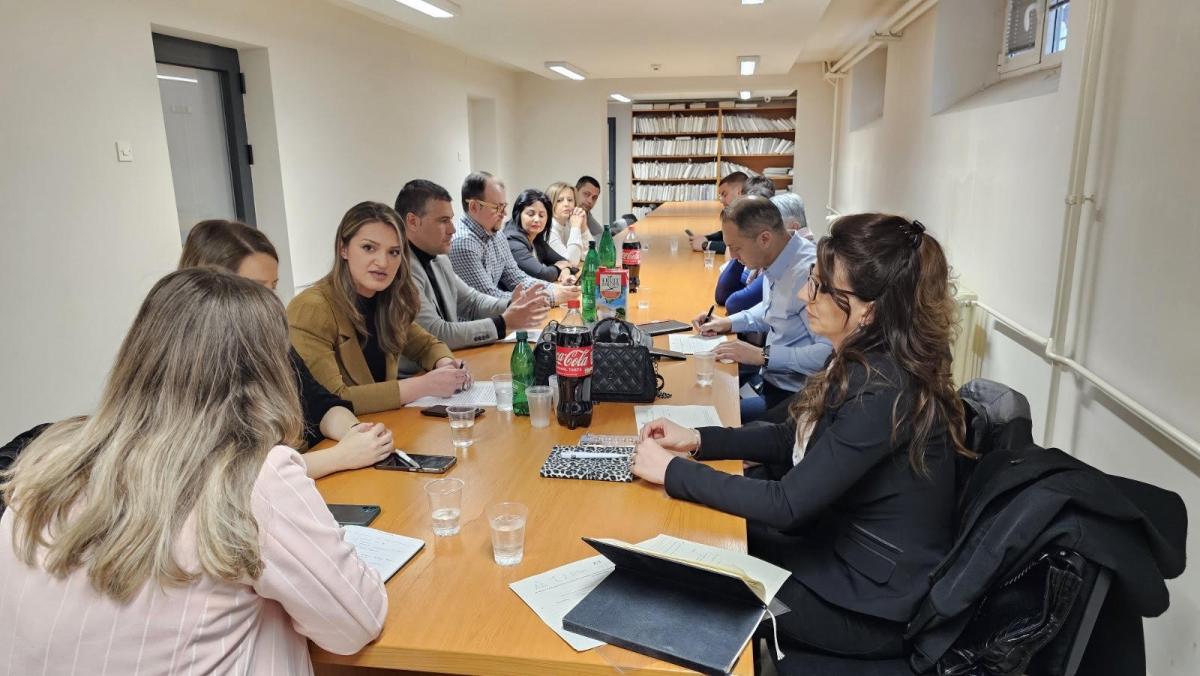Hotline: +381 61 63 84 071
How to improve the safety and security of women victims of violence
How to improve the safety and security of women victims of violence
Gender-based violence is not an isolated problem of individuals that should remain within four walls but an issue of the entire society that requires a comprehensive and networked response of all citizens. A particular responsibility is on those who, through their work and efforts, can and must contribute to providing adequate and timely assistance and support to victims of domestic and intimate partner violence, as well as ensure continuity in the fight against all forms of violence.
For many women, safe houses are often the only refuge providing them with the necessary safety and security. Assistance and support, above all to the victims and professional workers in the Safe Houses, should become a priority for each society. A reflection of the strength of a community is in the way it takes care of children, the elderly, victims of violence, as well as those who cannot cope alone and without the help of others. Actors, both at the local and national level, should take particular care in providing assistance and support so that all Safe houses have a uniform quality of services, but also to enable support for victims to continue their lives as independently as possible after they exit the Safe house.
NGO Atina has, in the period from January to April 2023, organized meetings with representatives of Safe houses for victims of violence in Leskovac, Niš, Kragujevac, Vranje, and Priboj to jointly map the challenges and issues Safe houses face not only in their daily functioning but also about the sustainability of these services at the local level. The provision of services depends on the decision-makers at the local level – local self-government, as well as on the possibility of specific budget allocations for work and functioning and the availability of other specialized services that (do not) exist in the community.
After these meetings, and to have a broader view of challenges, needs, and opportunities, multisectoral meetings were held in the period from April to June 2023 in Leskovac, Niš, Kragujevac, Vranje, and Priboj with 73 representatives of different institutions and organization. In addition to the directors and professional workers of the Safe houses for victims of violence, the meetings were also attended by decision-makers from various local institutions, representatives of health and educational institutions, centers for social work, the National Employment Service, Red Cross, public prosecutor's offices, primary courts, Youth Offices, and representatives of specialized non-governmental organizations that provide support to victims of domestic and partner violence at the local level. The meetings also included private business entities and companies that can contribute to the economic empowerment and independence of women who survived violence through various forms of training and employment.

Photo: NGO Atina, Leskovac, April 19, 2023
The focus of these multisectoral meetings and gatherings of different actors was on establishing a network of assistance and support at the local level, aimed to enable continuous support for victims of domestic violence, not only during their stay in the Safe house but also after exiting. During the meetings, the participants exchanged examples of good practices in the community and issues and challenges they all face in their work. The focus of the discussion in all the meetings was the question of the best strategies for improving the safety and security of women who have survived violence and ways to enable them to continue living independently in a safe environment even after exiting the safe house.
The participants agreed that it is necessary to continuously work, network, establish, and strengthen the networks of all relevant actors, each of whom will work from their domain and competencies to create an environment in which victims of domestic violence will have the opportunity to choose and make their lives by their needs. The need to develop a support network with the active participation of women who have experienced violence was recognized at all the meetings.
Photo: NGO Atina, Vranje, April 19, 2023
All the participants agreed that measures to fight against violence must be concrete and continuous. The recommendations and conclusions that emerged as a result of these meetings can be combined and applied in individual cities, but also at all levels of the fight against domestic violence, namely: the necessity to create a plan and network support for women who exit the Safe house; employment of a more significant number of professional workers in Safe houses for victims of violence; encouraging the development and more meaningful activities of the non-governmental sector as critical actors and partners in supporting the victims; improvement and clear communication and competences of the Safe house for victims of violence and competent centers for social work; economic empowerment and training for the development of skills and knowledge of women who have survived violence; better connections with the National Employment Services; creation of suitable ground for the development of social entrepreneurship as an opportunity for employment and self-employment; formation and formalization of different groups of employers who have the chance to employ vulnerable groups; as well as more effective local networking and formalization of cooperation through protocols on cooperation between actors who provide support to victims of domestic violence, for the purpose of more intensive and direct collaboration in the future.

This text was developed under the project “Safety of women and girls in Serbia,” implemented by UN Women Serbia in cooperation with the Coordination Body for Gender Equality and the Ministry of Labour, Employment, Veteran and Social Affairs, with the support of the British Embassy in Belgrade. The views in this text are those of the authors and do not necessarily represent the views of UN Women and the British Embassy in Belgrade.












 FACEBOOK
FACEBOOK TWITTER
TWITTER YOUTUBE
YOUTUBE